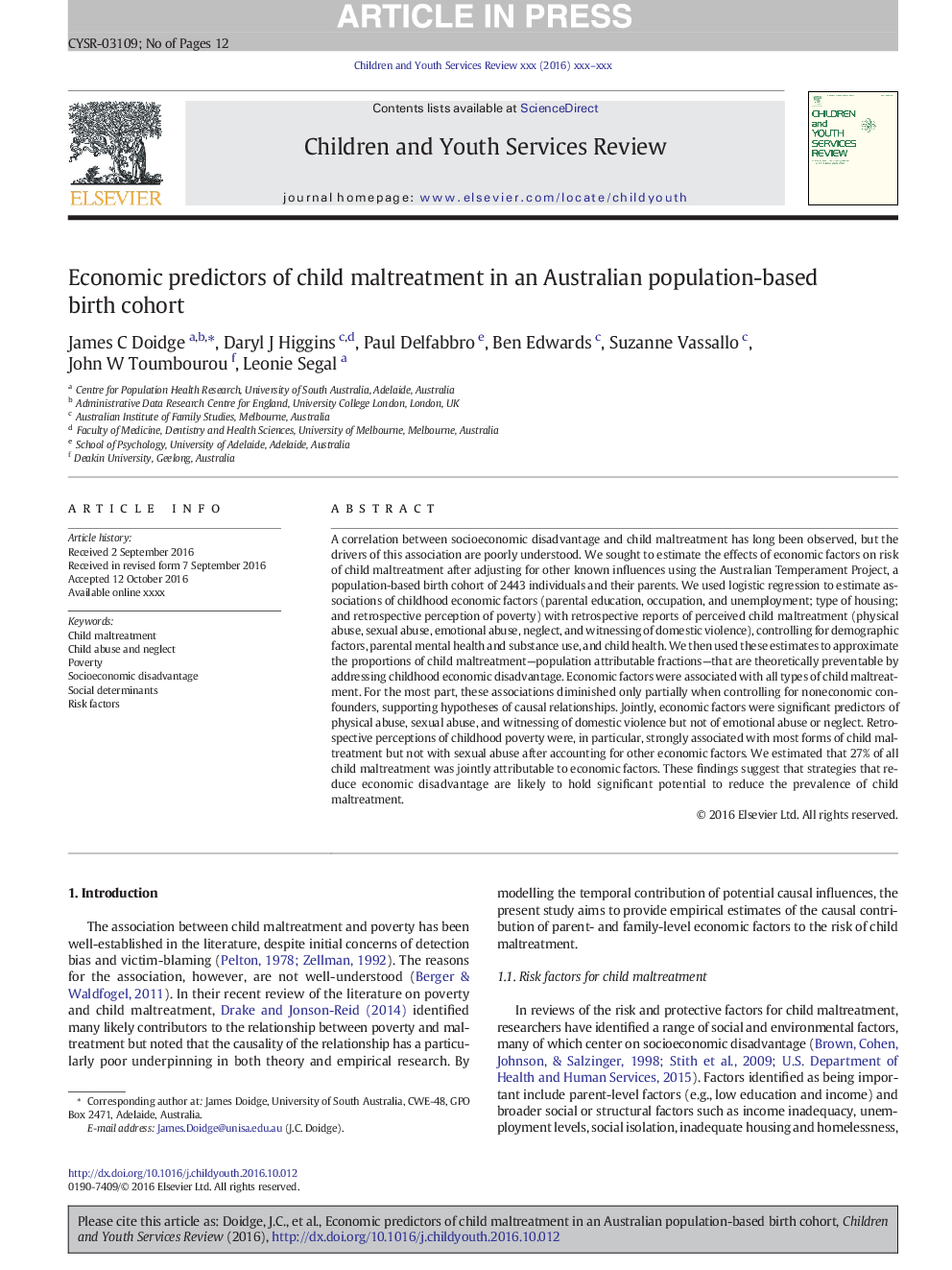ترجمه فارسی عنوان مقاله
پیش بینی های اقتصادی در مورد رفتار بد فرزند در یک گروه همجنسگرا در استرالیا
عنوان انگلیسی
Economic predictors of child maltreatment in an Australian population-based birth cohort
| کد مقاله | سال انتشار | تعداد صفحات مقاله انگلیسی |
|---|---|---|
| 130998 | 2017 | 12 صفحه PDF |
منبع

Publisher : Elsevier - Science Direct (الزویر - ساینس دایرکت)
Journal : Children and Youth Services Review, Volume 72, January 2017, Pages 14-25
ترجمه کلمات کلیدی
بدرفتاری با کودک، سوء استفاده از کودکان و غفلت، فقر، ضرر اجتماعی و اقتصادی، تعیین کننده های اجتماعی، عوامل خطر،
کلمات کلیدی انگلیسی
Child maltreatment; Child abuse and neglect; Poverty; Socioeconomic disadvantage; Social determinants; Risk factors;

